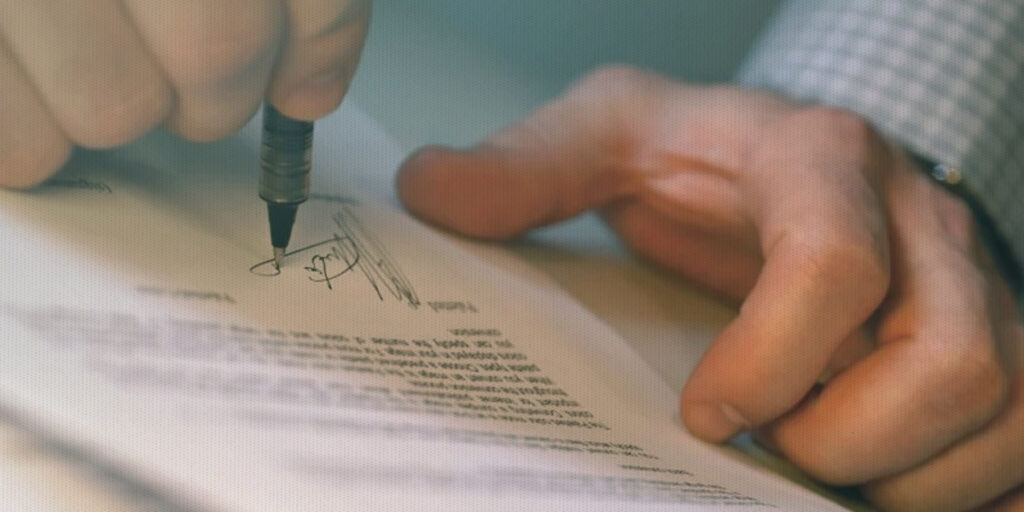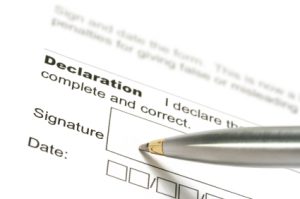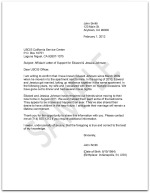
When filing Form I-751 to remove the conditions on residence, the conditional permanent resident also needs to submit evidence that the relationship was entered in “good faith.” U.S. Citizenship and Immigration Services (USCIS) wants to confirm that the marriage was not entered into for the purposes of evading immigration laws. Much confusion surrounds the need to submit an I-751 affidavit.
These “letters of support” are statements written by people that know the couple and have first-hand knowledge of the relationship. The I-751 affidavit helps support other evidence that the couple submits to demonstrate that the marriage was entered in good faith and is a not a “sham” marriage.
The I-751 affidavit is not mandatory, but it’s strongly suggested by many attorneys. What’s more, strong evidence of a bona fide marriage may help petitioners avoid the I-751 interview. Affidavits are most useful when the petitioner’s evidence of a bona fide marriage is weak and possibly insufficient.
I-751 Affidavit is Not Proof
An I-751 affidavit can never replace strong, objective evidence that a bona fide marriage exists. The best evidence of a genuine, good faith marriage includes proof of having children together, joint finances (such as bank accounts, insurance, and retirement plans) and jointly owned property. These documents demonstrate that the couple lives together and is planning for the future together.
RECOMMENDED: 33 Great Documents for Proving a Bona Fide Marriage on an I-751 Petition
Most attorneys will agree that an affidavit is never as good the primary forms of evidence mentioned above. However, petitioners can use the I-751 affidavit letter to fill in gaps or build a stronger case on top of existing evidence. But petitioners should expect USCIS to weigh the objective forms of evidence more heavily than an I-751 affidavit.
CitizenPath Guarantees USCIS Will Approve Your I-751
When you prepare your I-751 on CitizenPath, we provide simple, step-by-step instructions and alerts to help you avoid costly delays. We even guarantee USCIS will approve your form. No credit card is required to start.
Who Should Write an Affidavit
Typically, I-751 affidavit letters of support are written by friends of the married couple. The letter is not limited to friends; it may be written by a family member or even a religious leader. Ideally the person writing the letter of support has known the couple since before the marriage and until the present time. There is no requirement that the writer must be a U.S. citizen or even live in the United States. But remember, he or she should be a close confidant that is familiar with the couple’s life together. So the writer should ideally be local to the couple.
The I-751 affidavit is the writer’s opportunity to testify to his/her personal experience with the couple and share observations that led to the conclusion that the couple is in love and each spouse has honest intentions to remain a married couple. Of course, it’s impossible to be sure than even the most sincere couple will remain married forever. The writer can only testify to the extent of his/her personal knowledge.
Use of an Affidavit When Filing with a I-751 Waiver

In some cases, a marriage that was entered with the best intentions does not have a happy ending. Bona fide marriages could be terminated due to divorce or death. In these situations, the conditional resident must file Form I-751 with a waiver (instead of filing jointly with the spouse).
There is still a need to prove that the couple entered the marriage in good faith and intended to build a life together. This becomes more difficult when the conditional resident is no longer married. An I-751 affidavit can help to establish the good intentions of the couple and the unfortunate reasons for the marriage ending (particularly in cases with spousal abuse).
The conditional permanent resident should contact an immigration attorney before filing Form I-751 with a waiver for the joint filing requirement. In these cases, USCIS will scrutinize the I-751 petition more heavily. An attorney can help the conditional resident achieve the best outcome.
RECOMMENDED: I-751 Waiver After Divorce: Filing without the Ex
Properly Created Affidavit for Form I-751
An affidavit is basically a sworn letter. The person who writes an affidavit is an affiant. The affiant swears to the affidavit’s truth. When submitting I-751 affidavits to USCIS, experts recommend a typed letter. Every I-751 affidavit should cover these basic points:
- Full name and address of affiant
- Date and place of birth
- Relationship to the conditional resident and spouse
- An account of your relationship explaining:
- How you met the couple
- Time frame you have known the couple
- Give a sense of the frequency (i.e. frequently socialize)
- Details explaining how the person acquired this knowledge (i.e. friends)
- Date and signature
Remember, the I-751 affidavit is supporting evidence to prove that the couple has a bona fide marriage. That is, the marriage is true and genuine. So the affiant should ideally provide a short account of why he or she believes this is true. The affiant can use a story that demonstrates the couple’s mutual commitment, the hard work that the couple have put into the immigration process, etc.

The letter does not need to be notarized, but it is important to include a sworn statement that states, “I swear, under penalty of perjury, that the foregoing is true and correct to the best of my knowledge.”
The petitioner should understand that an affidavit is only supporting evidence. You must use primary forms of objective evidence to prove a good faith marriage and then use the affidavit to back it up.
RECOMMENDED: Prove a Good Faith Marriage When Filing I-751
Sample I-751 Affidavit

CitizenPath has prepared a downloadable I-751 affidavit sample that you can forward to friends who are willing to write a letter of support. The downloadable PDF file includes a list of the basic points that the writer should cover in the letter and an example I-751 affidavit.
Use the sample I-751 affidavit as an example. Remember that each letter is unique and should contain elements that are personal to your story. The affiant should be honest and use anecdotes to demonstrate why he or she came to the conclusion that the couple has a bona fide marriage.
Although it is not necessary in most cases, the affiant should understand that he/she may be required to testify before an immigration officer as to the information contained in the affidavit.
USCIS may require the couple to attend an interview after filing Form I-751 and the required evidence. However, the odds of avoiding this interview are greatly improved by providing adequate (quantity) and strong (quality) evidence of a bona fide marriage in the petition package. Many couples are able to avoid the I-751 interview. Filing at least two well-prepared I-751 affidavit letters of support in addition to primary forms of objective evidence can help seal the deal.
RECOMMENDED: Tips for Avoiding the I-751 Interview After Conditional Residence
About CitizenPath
CitizenPath provides simple, affordable, step-by-step guidance through USCIS immigration applications. Individuals, attorneys and non-profits use the service on desktop or mobile device to prepare immigration forms accurately, avoiding costly delays. CitizenPath allows users to try the service for free and provides a 100% money-back guarantee that USCIS will approve the application or petition. We provide support for the Petition to Remove Conditions on Residence (Form I-751), Green Card Renewal (Form I-90), the Citizenship Application (Form N-400), and several other popular forms.
Note to Reader: This post was originally published on December 12, 2017, and has been modified with improvements.
Want more immigration tips and how-to information for your family?
Sign up for CitizenPath’s FREE immigration newsletter and
SAVE 10%
on our immigration services




